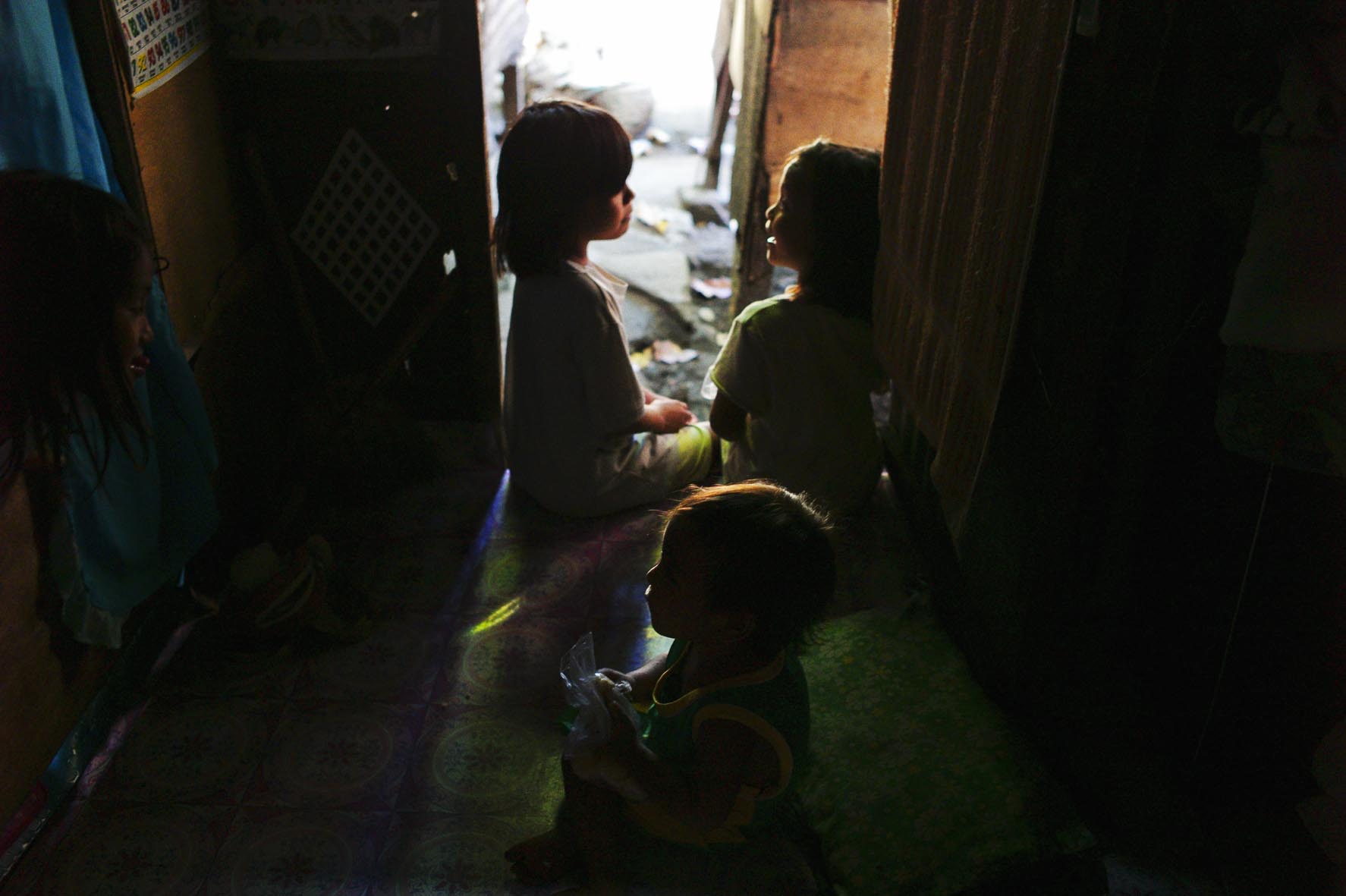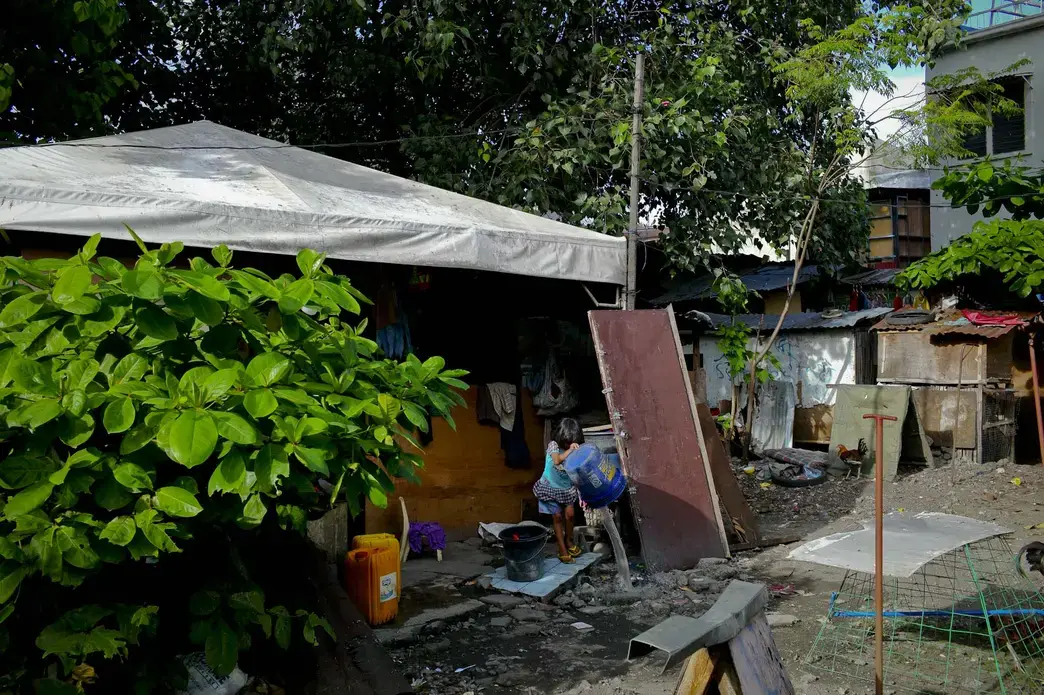CEBU, Philippines – No one has anything bad to say about Kristy.
Death propels the departed to celestial heights. Those who remember them profess beatitudes and sing praises in their name. No one speaks ill of the dead.
And no one speaks ill of Kristy. But they don't really have much to say about her either except the general stuff like "she was nice", "she was kind", or "she was helpful".
Kristy was a vagabond, flitting in and out of people's lives. She never really stayed around long enough for people to get to know her.
At night, she trawled the streets of Cebu City on the look out for would-be "guests", hoping to make some cash to get by, but mostly, to feed her habit.
Kristy was a shooter. She injected Nubain, a narcotic pain reliever that calmed her nerves and allowed her to drift through life rather than live it.
It only took P20 to get a quick hit in the barangays (villages) where shooting rooms were hidden in plain sight among the other ramshackle homes pieced together by blocks of wood and corrugated steel.
The P20 didn't include a syringe though. That would be another P8, sometimes P20. Never mind. There was always a service needle that the pusher provided for free in the shooting room.
Everyone shared that needle. Everyone was happy. Everyone was dazed and high.
Pregnant and HIV-positive
Kristy found out she was HIV-positive by chance. She was 7 months pregnant with her fifth child when she sought the help of Glory Reborn, a charity that runs a birthing center.
Kristy was offered a range of tests as part of her pre-natal care and one of the tests was for HIV.
Cebu Plus, an NGO that offers community support for people living with HIV (PLHIV) took care of Kristy then. They put her on ARV, scheduled her C-section and advised her not to breastfeed – the necessary measures that would lessen the possibility of infecting her unborn child with HIV.
Lorna who leads the Cebu Plus interventions on prevention of mother-to-child transmission looked after Kristy at the Cebu Plus shelter until she gave birth to a baby girl. The baby was negative for HIV and was turned over to an orphanage run by nuns.
Kristy went back to her old ways after giving birth; back to roaming the streets to make some money, back to the shooting rooms for a quick high.
When she found her way back to the Cebu Plus Shelter, she was very sick.
"She went off her ARV (antiretroviral) medication," said Lorna.
The drugs would suppress the HIV virus and stop its progression but it required a strict regimen that meant taking them at an exact time every day. It was a regimen that might have been too much for Kristy.
It was time for a loved one to look after her, but that was not going to be easy.
Turned away
"Kristy's nearest of kin was an aunt living about one hour away from Cebu City," said Erick, an HIV counselor at Cebu Plus. "We brought her there and brought her back. Her aunt refused to take her in."
"We don't want to take care of someone who is sick," said the aunt. There was no time and there was no money. There was no space for Kristy in her home.
But there was no one else. Kristy had lost touch with her parents in Butuan long ago. From what the others knew, she had 4 kids in the province, but she said had given some away and some were turned over to the Department of Social Welfare and Development (DSWD). No one really knew for sure.
When she died, succumbing to tuberculosis and hepatitis-C, no one knew what to do with her ashes.
It was the nuns who decided to have her buried. The same nuns who took in Kristy's daughter negotiated her final resting place with a local cemetery.
There were 6 people who stood by as Kristy's ashes where buried in a tiny square plot of land, just enough to fit a large shoebox.
Praying lady
"After we buried her, I thought the right thing to do would be to pray for her," said Lorna.
As a child, Lorna's grandmother had taught her the vespers for the dead, the 9-day novena what would pave the way to heaven for the departed.
Lorna would look at her grandmother with her eyes closed in deep prayer and imagined some kind of light radiating from her. "It really seemed to me as if she had divine powers," said Lorna in a mix of Tagalog and Cebuano.
It was December 2013 when Lorna and others from Cebu Plus prayed for Kristy. Since then, Lorna has been called on to pray for others who have passed on from complications related to HIV.
There was Baby, the transgender from Davao who succumbed to meningitis. Joel, the injecting drug user who hanged himself. There were women like Kristy who injected drugs and worked the streets. There were monogamous women who were unsuspecting partners of injecting drug users. And still others who found out about their status too late, those who went off their meds and succumbed to opportunistic infections and those who gave up.
Grappling with a growing epidemic
The Philippines is struggling to cope with a growing HIV epidemic. In September 2015, the Department of Health (DOH) reported a total of more than 28,000 HIV cases in the country. About 20,000 of those cases were detected in the last 5 years. (Listen to the podcast: HIV epidemic in the Philippines)
The main mode of transmission is through sexual contact among men who have sex with men (MSM).
However, Cebu has a peculiar concentrated HIV epidemic driven mostly by injecting drug use. Of the 1,366 HIV infections reported by the Cebu City AIDS Council, about 74% were transmitted by sharing needles while injecting drugs. Majority of those who inject drugs (PWID) are male.
Remembering the departed
On occasions like All Souls Day when the nation pays its respects to loved ones who have gone on to the afterlife, Lorna prays for those who passed on from HIV-related complications.
Some like Kristy have no one to pray for them.
Lorna prays for their souls and for hers. Like Kristy, Lorna was once a sex worker, too. She found out she was HIV-positive while working in a bar and a routine STI test turned up with a positive result.
"I see myself in them. I was saved somehow. Why couldn't they be saved?" Lorna asked.
*Names have been changed to protect their privacy.


















